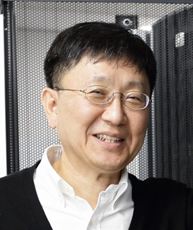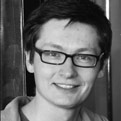Keynote Speakers
Enterprise In-Memory Database: A Revolution Beyond Crossing The Chasm
Dr. Sang Kyun Cha, Seoul National University
 Bio: Sang Kyun Cha is a professor, an innovator, and an entrepreneur. He worked on three generations of commercialized in-memory database technology since he joined Seoul National University in 1992. In 2000, he founded Transact In Memory, Inc. with his vision of developing an enterprise in-memory database system called P*TIME (Parallel* Transact-In-Memory Engine). The company was quietly acquired by SAP in late 2005.
Bio: Sang Kyun Cha is a professor, an innovator, and an entrepreneur. He worked on three generations of commercialized in-memory database technology since he joined Seoul National University in 1992. In 2000, he founded Transact In Memory, Inc. with his vision of developing an enterprise in-memory database system called P*TIME (Parallel* Transact-In-Memory Engine). The company was quietly acquired by SAP in late 2005.
By early 2006, Prof. Cha’s team completed P*TIME development with an innovative OLTP scalability architecture: parallel logging and recovery, MVCC, optimistic latch-free index concurrency control, and support of seamless two-tier access resilient to application crash as well as three-tier access. His team also tightly integrated P*TIME with SAP’s middleware and application stack and demonstrated its extreme scalability.
With SAP’s in-house column store TREX, P*TIME served as a corner stone of developing SAP HANA, the first distributed enterprise in-memory database system enabling real-time analytics over transactionally integrated row and column stores. Today, SAP and many other companies run ERP, CRM, business warehouse on HANA. By SAP’s request, Prof. Cha led SAP’s Korean HANA development.
From April 2014, he serves as the founding director of Big Data Institute at Seoul National University and leads trans-disciplinary big data research. He has been also serving on the board of Korea Telecom and providing strategic advice to central and local governments on big data and software industry issues. Prof. Cha received his BS and MS from Seoul National University and his Ph.D. from Stanford University.
The MemSQL In-Memory Database System
Nikita Shamgunov, CTO and Co-Founder, MemSQL
 Bio: Nikita Shamgunov co-founded MemSQL and has served as its CTO since inception. Previously, Nikita worked on core infrastructure systems at Facebook. He served as a distinguished senior database engineer at Microsoft SQL Server for more than half a decade. Nikita holds a bachelor’s, master’s and doctorate in computer science, and has been awarded several patents and was a world medalist in ACM programming contests.
Bio: Nikita Shamgunov co-founded MemSQL and has served as its CTO since inception. Previously, Nikita worked on core infrastructure systems at Facebook. He served as a distinguished senior database engineer at Microsoft SQL Server for more than half a decade. Nikita holds a bachelor’s, master’s and doctorate in computer science, and has been awarded several patents and was a world medalist in ACM programming contests.
Abstract: The most exciting kinds of technological shifts are when a new programming model becomes feasible, and when an old restriction falls away. Both kinds are happening right now. Distributed computing is rapidly becoming the dominant programming model throughout the entire software stack. The "Central Processing Unit" is no longer central; it's only one of many bugs crawling over a mountain of data. At the same time the latency gap between the CPU and hard drive storage is becoming irrelevant. For 30 years the central fact of database performance was the gigantic, 10,000X, difference in the time it takes to access a random piece of data in RAM versus on a hard drive. It's now feasible to skip this chasm by placing your data entirely in RAM. These two trends are producing an entirely new way to think about, design, and build applications. This talk will cover how we got here, how we're doing, and hints about where the future will take us.